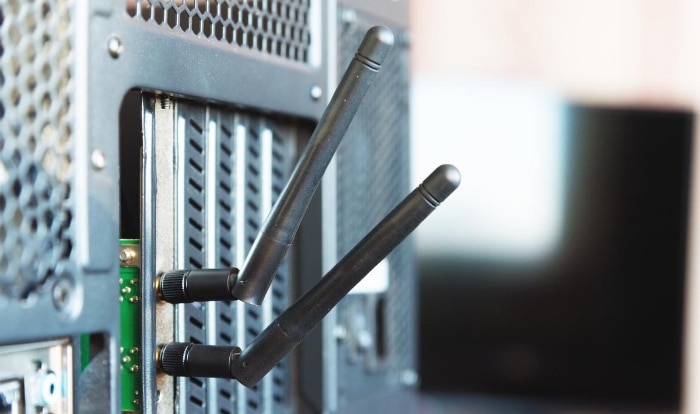WiFi Card vs. WiFi Adapter: Which One Is Best for You?

The world of wireless connectivity has expanded significantly in recent years, with an increasing number of devices and applications relying on stable and fast internet connections. As a result, understanding the options available for optimizing your wireless experience is more important than ever.
Two popular solutions for enhancing wireless connectivity are WiFi cards and WiFi adapters. While both options serve the same basic purpose, they differ in terms of features, performance, and suitability for various situations.
Understanding WiFi Cards
Before diving into the specifics of WiFi cards, it’s important to recognize their role in the wireless connectivity landscape. WiFi cards serve as a crucial component for devices that require a stable and high-performance wireless connection.
Definition and Functionality
A WiFi card, also known as a wireless network card or wireless adapter card, is a hardware component that enables devices, such as desktop computers or laptops, to connect to wireless networks.
By installing a WiFi card in your device, you can access the internet without the need for Ethernet cables, providing flexibility and mobility. WiFi cards work by communicating with a wireless router, translating data into a radio signal and transmitting it using an antenna.
Types of WiFi Cards
Internal PCIe WiFi Cards
These WiFi cards connect to a computer’s PCIe (Peripheral Component Interconnect Express) slot, a high-speed expansion slot on the motherboard. Internal PCIe WiFi cards are commonly used in desktop computers and offer better signal strength and faster connection speeds compared to USB-based WiFi adapters.
Mini PCIe WiFi Cards
Designed for use in laptops and other compact devices, Mini PCIe WiFi cards are smaller than their standard PCIe counterparts. They provide similar functionality but are specifically designed to fit into the limited space available in smaller devices.
M.2 WiFi Cards
M.2 WiFi cards are another compact option, designed to be used with M.2 slots on the motherboard. M.2 is a newer standard than Mini PCIe and offers even faster connection speeds. These cards are typically found in modern laptops and ultrabooks.
Pros of Using WiFi Cards
Better Signal Strength
WiFi cards, especially internal PCIe cards, tend to have stronger antennas, resulting in better signal strength and more reliable connections.
Faster Connection Speeds
WiFi cards can offer faster connection speeds compared to USB-based WiFi adapters, making them ideal for tasks that require high-speed internet, such as online gaming and video streaming.
Lower Latency
WiFi cards generally provide lower latency than WiFi adapters, which is essential for time-sensitive tasks, like gaming and video conferencing.
Cons of Using WiFi Cards
Limited Compatibility
WiFi cards require specific slots on the motherboard, which may not be available on all devices, limiting their compatibility.
Installation Requirements
Installing a WiFi card often requires opening up the device and physically connecting it to the motherboard, which can be intimidating for users who are not comfortable with handling hardware components.
Less Portable
WiFi cards, particularly internal PCIe cards, are less portable than USB-based WiFi adapters, making them less suitable for use with laptops or devices that frequently change locations.
Exploring WiFi Adapters
As an alternative to WiFi cards, WiFi adapters offer a more portable and easy-to-install option for wireless connectivity.
Definition and Functionality
A WiFi adapter, also known as a wireless adapter or wireless network adapter, is an external device that enables wireless connectivity for devices that lack built-in WiFi capabilities or require an upgrade to their existing wireless capabilities.
WiFi adapters work by connecting to a device through a USB port or other interface and establishing a connection with a wireless network, allowing users to access the internet wirelessly.
USB WiFi Adapters
These small and portable devices plug directly into a USB port on your computer or laptop. USB WiFi adapters are widely compatible and easy to install, making them a popular choice for users looking for a quick and simple way to improve their wireless connectivity.
Pros of Using WiFi Adapters

Portability
WiFi adapters, especially USB-based options, are compact and easily portable, making them a convenient solution for laptops or devices that frequently change locations.
Easy Installation
Installing a WiFi adapter typically involves simply plugging it into the appropriate port, with no need to open up the device or handle internal components.
Wide Compatibility
WiFi adapters are compatible with a broad range of devices, as they do not require specific slots on the motherboard.
Cons of Using WiFi Adapters
Limited Range
WiFi adapters may have a shorter range compared to WiFi cards due to their smaller antennas, which can result in weaker signal strength in some cases.
Slower Connection Speeds
USB-based WiFi adapters can have slower connection speeds than WiFi cards, particularly if the USB port is shared with other devices or if the adapter is using an older USB standard.
Potential Interference with Other USB Devices
Using a WiFi adapter in close proximity to other USB devices may cause interference, leading to reduced performance or connectivity issues.
WiFi Card vs. WiFi Adapter
Choosing between a WiFi card and a WiFi adapter involves careful consideration of various factors and individual requirements.
Factors to Consider
When deciding between a WiFi card and a WiFi adapter, it’s essential to take several factors into consideration to ensure you choose the best option for your needs. Some key factors include:
Device Compatibility
Ensure that the WiFi card or adapter you choose is compatible with your device. For example, if your device lacks the required PCIe or M.2 slot, a WiFi card may not be suitable.
Performance Needs
Consider your performance requirements, such as connection speed, signal strength, and latency. If you require a high-speed, low-latency connection for tasks like gaming or video streaming, a WiFi card may be more suitable.
Budget
WiFi cards and adapters come at different price points. Determine your budget and choose an option that offers the best performance within your price range.
Portability
If you need a portable solution for use with a laptop or a device that frequently changes locations, a WiFi adapter may be more appropriate due to its compact size and easy installation.
Installation Process
Consider your comfort level with installing hardware components. If you prefer a simple, plug-and-play solution, a WiFi adapter may be more appealing.
Ideal Scenarios for Using WiFi Cards
Desktop Computers
WiFi cards, particularly internal PCIe cards, are an excellent option for desktop computers due to their superior performance and signal strength.
Gaming Setups
For gaming setups, where low latency and fast connection speeds are crucial, a WiFi card is often the preferred choice.
Home Offices
In home office environments, where a reliable and stable internet connection is essential, a WiFi card can provide the required performance.
Ideal Scenarios for Using WiFi Adapters
Laptops
WiFi adapters are a perfect fit for laptops due to their portability and ease of installation.
Travel
For users who travel frequently or need a temporary wireless solution, a WiFi adapter offers a convenient and portable option.
Temporary Setups
In scenarios where a permanent wireless solution is not required, such as setting up a temporary workstation or connecting a device with no built-in WiFi, a WiFi adapter can be an ideal solution.
Conclusion
In summary, both WiFi cards and WiFi adapters serve as viable solutions for enhancing wireless connectivity, but their suitability depends on various factors such as device compatibility, performance needs, budget, portability, and installation process.
WiFi cards tend to offer better signal strength, faster connection speeds, and lower latency, making them ideal for desktop computers, gaming setups, and home offices. On the other hand, WiFi adapters provide a portable and easy-to-install option that is well-suited for laptops, travel, and temporary setups.
When choosing between a WiFi card and a WiFi adapter, it’s crucial to carefully evaluate your specific requirements and weigh the pros and cons of each option. By doing so, you can make an informed decision and select the most suitable solution to ensure a reliable and efficient wireless connection for your device.



